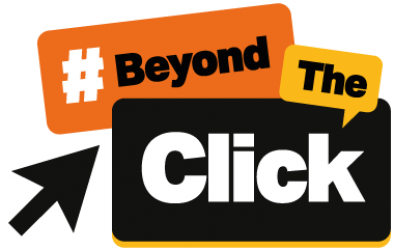The 10 Elements for Global Digital Citizenship
The 10 Elements for Global Digital Citizenship is based on a range of key reference points in education for sustainable development, global citizenship education, digital literacy and human rights education.
Ways of Thinking
1. Be curious. We’re all connected.
Learn to ‘dance with the system’ and influence how decisions are made, especially in moments of opportunity and crisis. Decisions are made in many different kinds of institutions and places with implications near and far. Who’s involved and what kind of power do they have? How should we defend what’s important to us, our communities and our democracy and how do we best challenge the power and influence of ‘the few’?
2. Think of 6 before you click.
Facts matter. Burst social and news ‘filters’ by asking at least 6 questions about a news story. Think critical and start by asking a daily dose of 6: who, what, where, when, how and why?
3. Question yourself.
- How do I see myself and what is my role (and potential role) for ethical behaviour?
- Do I have an ethical role and responsibility online?
- What might be some of the consequences?
- What are some of my prejudices and power?
Consider the kinds of footprints you would like to make in the world, and think about your privacy and security online, and offline. Teaching and learning towards a healthier, happier and better world starts with emotional (and physical) well-being.
4. Learn to recognise problems while also imagining solutions.
Ideas matter. They help us to think about the present, remember the past, and consider the future. What are the risks of change? Change can be positive, static or negative and reverse gains. What are the possible, probable and desirable solutions and future you would like to see?
Ways of Working
5. Promote dignity and challenge injustice.
Thinking about the social norms and values underpinning our actions matters. Societies are full of trade-offs and bear the scars of argument, loyalties and conflicts of interest. Promote values and principles and goals that involve sustainability, human rights, equality and justice.
6. Show humility and embrace uncertainty. Look for ‘missing’ perspectives and stay rooted in global realities.
On a planet of worldviews, what voices have been included or excluded in the struggle for justice and change, and what can be done about it?
7. Collaborate and walk with, not for, others.
Practice empathy. Listen, seek out and look to understand the needs and perspectives of others in order to build connections. Build alliances, join communities, participate in networks, collaborate with others and walk together online and offline to change the world.
Ways of Acting
8. Create new original work.
Produce your own call to action – posters, podcasts, hashtags, digital resource – to inform, inspire and engage your stories and actions (and those of others) on the ground.
9. Be strategic.
Seeing every ‘breaking story’ appear on our screens appears like wave after wave of noise, where we seldom see the ocean. Map the future you would like to see and plot how you are going to get there. Be alert to the use of words. Read beyond the dominant story and be insistent on telling a different, more authentic one.
10. Stand out.
Do or say something different. Use your chance to dismantle stereotypes and challenge the status quo. Making change happen is often uncomfortable. Remember Rosa Parks. Set an example.
...and, a final one:
11. Think Public–Private and Private–Public.
Challenge the idea that what we ‘own’ together (commonwealth) should become private (owned by the few), while what is private (our own data and identity) should become public (an available ‘commodity’).
The 10 Elements for Global Digital Citizenship is based on a range of key reference points in education for sustainable development, global citizenship education, digital literacy and human rights education, including:
- Dóchas Code of Conduct on Images and Messages (2007), Dóchas dochas.ie/images-and-messages
- Education for Sustainable Development Goals: Learning Objectives (2017) by UNESCO unesdoc.unesco.org/images/0024/002474/247444e.pdf
- How to Communicate the World: A social Media Guide for Volunteers and Travellers (2017) SAIH – The Norwegian Students’ and Academics’ International Assistance Fund radiaid.com/social-media-guide
- Measuring Global Citizenship Education: A Collection of Practices and Tools (2017), The Brookings Institution brookings.edu/research/measuring-global-citizenship-education
- On Tyranny: Twenty Lessons from the Twentieth Century (2017) by Timothy Snyder. The Bodley Head, London.
- Teaching Tolerance Digital Literacy Framework (2017) by Southern Poverty Law Centre tolerance.org/frameworks/digital-literacy
- 21st Century Skills, Human Development Report 2016: Human Development for Everyone (2017), UNDP hdr.undp.org/en/2016-report
The A3 poster of the 10 Elements for Global Digital Citizenship is available to order from the 80:20 online shop.

